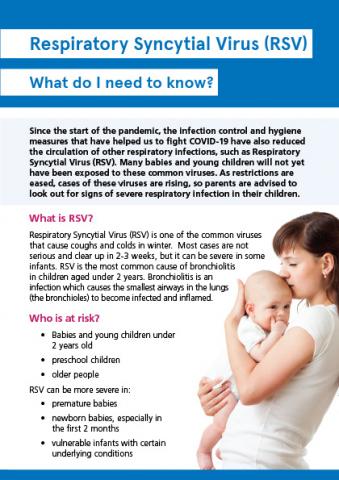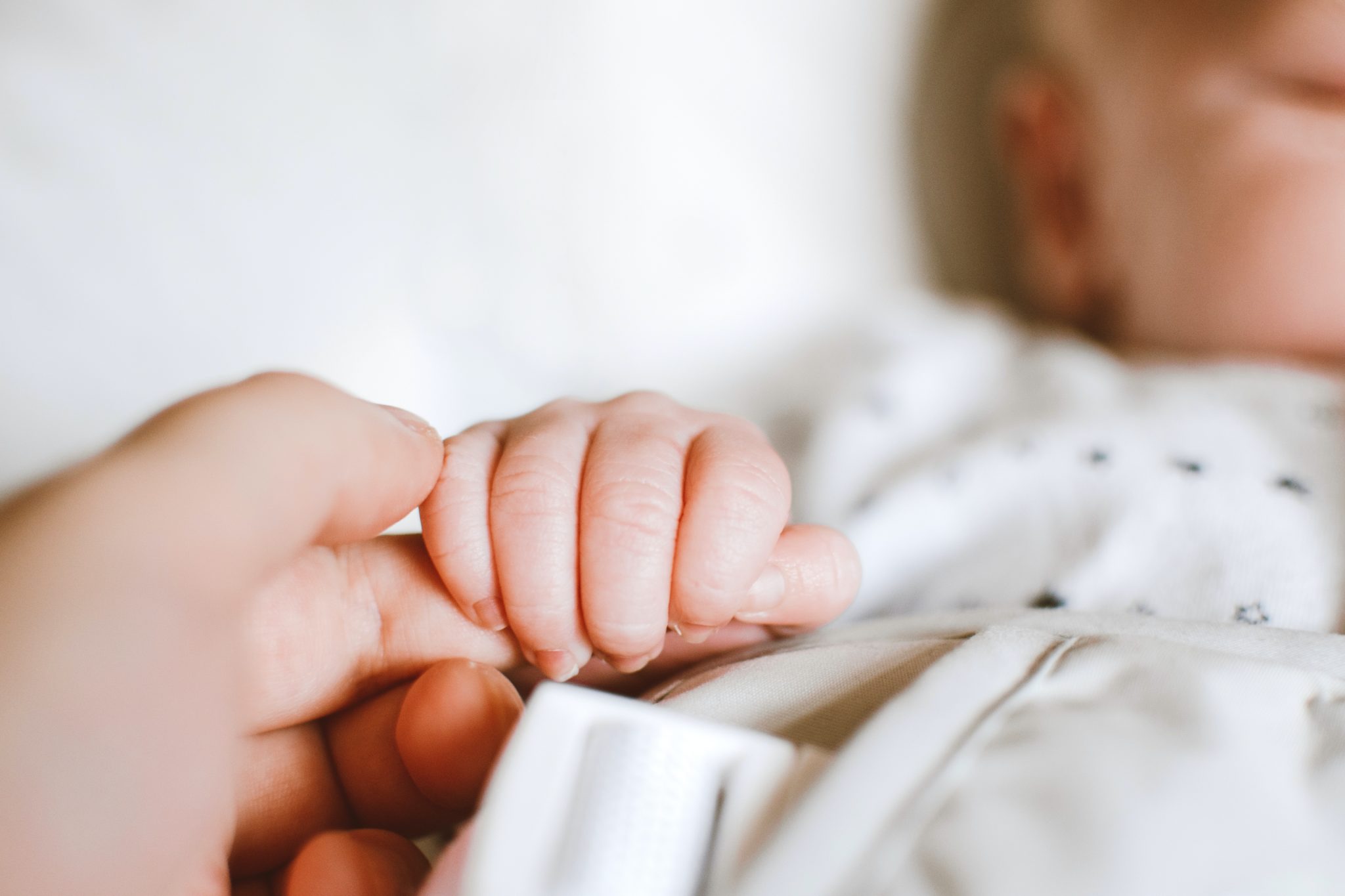rsv in babies nhs
RSV is the most common respiratory virus in young children and presents as an upper respiratory infection. Respiratory syncytial virus is very common in the UK and will infect most children before the age of two often leading to a mild cough and cold.

A Weekly Look At Premature Babies And Complications Premature Baby Baby Weeks Preemie Babies
These documents set out the interim clinical commissioning position for passive immunisation with palivizumab against respiratory syncytial virus RSV in at-risk pre-term.

. Clinicians at both Doncaster Royal Infirmary and Bassetlaw are seeing an increase in respiratory illness in. Give childrens paracetamol to babies and children over 2 months old or ibuprofen to babies and children over 3 months. In most cases the respiratory syncytial virus RSV is responsible.
Ad Health Care Providers Learn about the Risks that RSV Poses in Infants. Bluish color of the skin due to lack of oxygen cyanosis Infants are most severely. Almost all will have had it by the time they are two.
For most babies and. Symptoms of RSV infection usually include. Try using salt water saline drops if your childs nose is blocked keep.
Those most at risk of developing severe and occasionally fatal RSV infection are very. Worldwide RSV is one of the leading causes. Respiratory Syncytial Virus RSV is a common virus which causes acute lower respiratory tract infections particularly in children aged under five.
Learn More about Respiratory Syncytial Virus in Infants on the Offical HCP Website. Learn More about Respiratory Syncytial Virus in Infants on the Offical HCP Website. Ad Health Care Providers Learn about the Risks that RSV Poses in Infants.
These symptoms usually appear in stages and not all at once. RSV in Very Young Infants Irritability Decreased activity Decreased appetite Apnea pauses while breathing. RSV starts with a blocked or runny nose and can progress to a dry cough fever and sometimes breathing problems For most children it will be mild and can.
It may cause a cough or cold but for some it can lead to bronchiolitis an inflammatory. High risk babies from catching respiratory syncytial virus which can cause serious illness and death. Children and young people Nursing midwifery and care Publication type.
Rapid breathing or difficulty breathing the person may prefer to sit up rather than lie down. In fact RSV is so common that nearly all children get the infection by the time they reach 3 years old. In normal circumstances most children will have had RSV by their.
Respiratory syncytial virus RSV is a viral illness that causes symptoms such as trouble breathing it is the most common cause of bronchiolitis. Most children will make a full recovery without any medical treatment. RSV is a very common virus.
Use our self help guide for fever in babies. Around one in three children in the UK will develop bronchiolitis during their first year of life. RSV is common in babies and children.
RSV is most common in infants between 2 and 8 months of age. Respiratory syncytial virus RSV is a common and very contagious virus that infects the respiratory tract of most children before their second birthday. This guidance has been developed to support the redeployment planning processes to respond to.
Possible causes of cold and flu. Usually RSV only causes cold-like. Respiratory Syncytial Virus RSV Bronchiolitis is almost always caused by a viral infection.
More about fever in children. The NHS says. RSV is one of the most common viruses which causes bronchiolitis.
Know the signs and symptoms of RSV. How to spot RSV. It most commonly affects babies between three and six months of.
Respiratory syncytial virus or RSV for short is a strange-sounding name for an illness you may not have heard of but its more common than you may think. Parents are being encouraged to look out for symptoms of severe infection in at-risk children including fever with a high temperature of 378C or above a dry and persistent.

Nhs Greater Glasgow And Clyde On Twitter Rt P H S Official Respiratory Syncytial Virus Rsv Is A Common Virus That Causes Cold And Flu Symptoms In Babies And Children And Modera Twitter

Public Health Wales Rsv Is A Common Virus That Causes Coughs And Colds And It Is Currently Spreading In Wales If You Have Rsv Or Another Cold Like Illness Keep Away From

Nhs Expands Immunisation Against Childhood Virus Amid Fears Of 50 Per Cent Surge In Cases The Independent

Rsv Respiratory Syncytial Virus What Parents Should Know Youtube

Symptoms Causes And Home Remedies For Rsv In Babies Pediatric Nursing Sick Baby Pediatrics
/GettyImages-1168239576-139ddd91703e419b8c65467622a27cb2.jpg)
Recurrent Respiratory Infections In Children

Colds And How To Help Your Toddler Or Young Child Feel Better Babycenter

Respiratory Syncytial Virus Rsv What Do I Need To Know Hsc Public Health Agency

Signs That Your Child Has Rsv And Not Just A Cold Children Kids Health Kids And Parenting

首页 宿州市妍晨机械设备有限公司 Keeping Kids Healthy Pediatric Nursing Preemie

Bronchiolitis Respiratory Syncytial Virus Covid 19 Vaccine Information For Essex
/GettyImages-854287660-b71e81cb670d4c5ca55526c44ab7130e.jpg)
Newborn Cold What You Should Know

The Virus Every Parent Needs To Know About Netmums

What Is Rsv Symptoms Of Respiratory Syncytial Virus Explained And Why Nhs Expects An Outbreak This Winter Nationalworld

Know The Signs And Symptoms Of Respiratory Syncytial Virus Rsv Doncaster And Bassetlaw Teaching Hospitals

Bronchiolitis In Babies What Should You Do Channel Mum Youtube

Medical Sciences On Twitter October Is Rsvawarenessmonth Respiratory Syncytial Virus Is The Most Common Viral Cause Of The Common Cold And Chest Infections In Infants There Is Currently No Treatment To Cure

